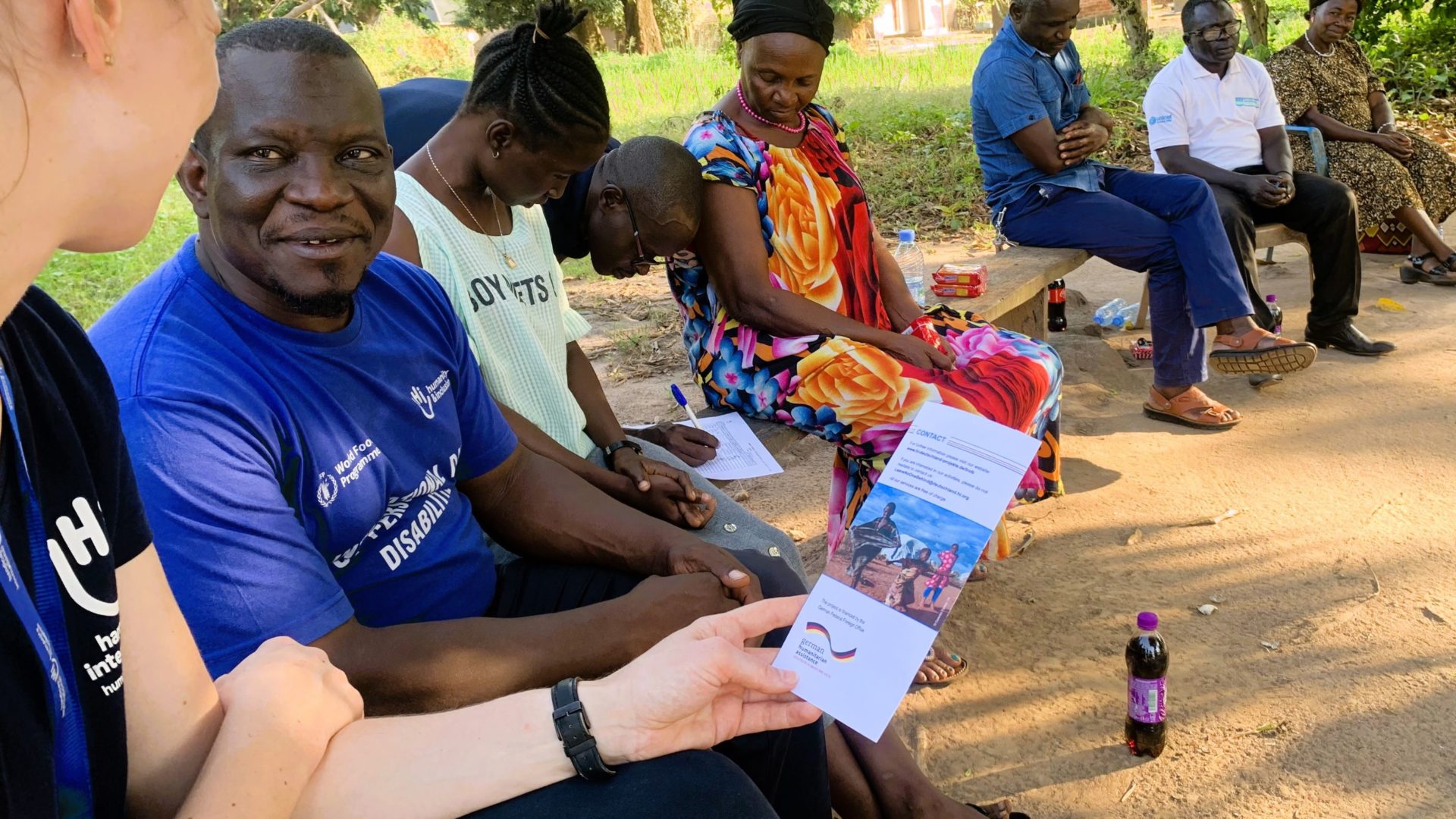Partnering for Disability-Inclusive Food Security and Livelihood Programming
Category
Applied Accompanying Research IASC-Guidelines Pilot Countries
© HI
Between 2022 and 2023, the World Food Programme (WFP) and HI have jointly conducted research on the longer-term outcomes of a seven-month pilot project aimed at strengthening access and meaningful participation of persons with disabilities to food security and livelihood (FSL) opportunities in Western Equatoria, South Sudan. Our findings are out now! They demonstrate the effectiveness and relevance of the partnership and the pilot project, including its impact on other projects.
What we wanted to learn:
- What changes were initiated and sustained in WFP’s programming?
- What are the key success and hindering factors to anchor and maintain the four “must do” actions and the twin-track approach as part of an inclusive programming approach in line with the IASC Guidelines on Inclusion of Persons with Disabilities in Humanitarian Action?
- What factors could foster replication and/or scaling in other contexts?
What we found out:
- The pilot demonstrated the relevance and effectiveness of the partnership between WFP and HI South Sudan.
- WFP’s ownership, commitment and support from senior management staff was essential in starting the pilot.
- Another success factor was the interest and willingness of WFP and CP staff before, during and after the project to learn more and apply their newly gained knowledge on mainstreaming disability into their work.
- The pilot project was guided by the four “must do” actions of the IASC Guidelines.
The project ensured meaningful participation of persons with disabilities and their representative local group, empowered them to contribute to project activities, provided capacity development for WFP, cooperating partners, state ministries, community leaders and members with and without disabilities, and removed barriers that were identified during the collection of quality disaggregated data, using the Washington Group of Questions (WGQs) and a barriers and enablers assessment.
- Many of the actions and good practices initiated during the project were continued or had an impact on other projects carried out after the end of the pilot project.
“With the training the actors have received they […] they can do the basics in terms of changing the situations and the challenges that people with disabilities face in the contexts where they work.”
– Person with visual impairment
The recommendations we have:
- Ensure meaningful participation of persons with different disabilities and/or their representative (in)formal groups who are interested, and have the capacity or are willing to build their capacity. For example, as project staff, enumerators or co-facilitators in trainings and sensitisation sessions.
- Provide sensitization sessions to decrease stigmatization and discrimination and ensure that these are inclusive of and accessible to persons with different disabilities.
- Provide participatory and tailored training and technical support, including training a pool of disability inclusion focal points to support and guide their own organisations on disability inclusion.
- Offer opportunities to persons with disabilities to learn about their entitlements to access and meaningfully participate in FSL programmes.
- Strengthen data collection using the WGQs and barriers and enablers assessments and ensure feedback mechanisms are inclusive of persons with different disabilities.
The research findings provide an overview of:
- the barriers, enablers, risks and capacities identified in the barriers and enablers assessment at the beginning of the project;
- illustrate the project activities which were designed based on the assessment;
- highlight the good practices that were continued eight months after the project ended, as well as the gaps that continue to exist;
- emphasise key succces and hindering factors for the partnership and the pilot project’s outcome;
- and provide key recommendation to replicate and/or scale these practices in other or the same context.
The case study was conducted by Sabrina Ebert, HI’s inclusive humanitarian action technical officer.
The full report, executive summary, and a fact sheet are available in accessible PDFs as well as ePub-versions (see on the sidebar).